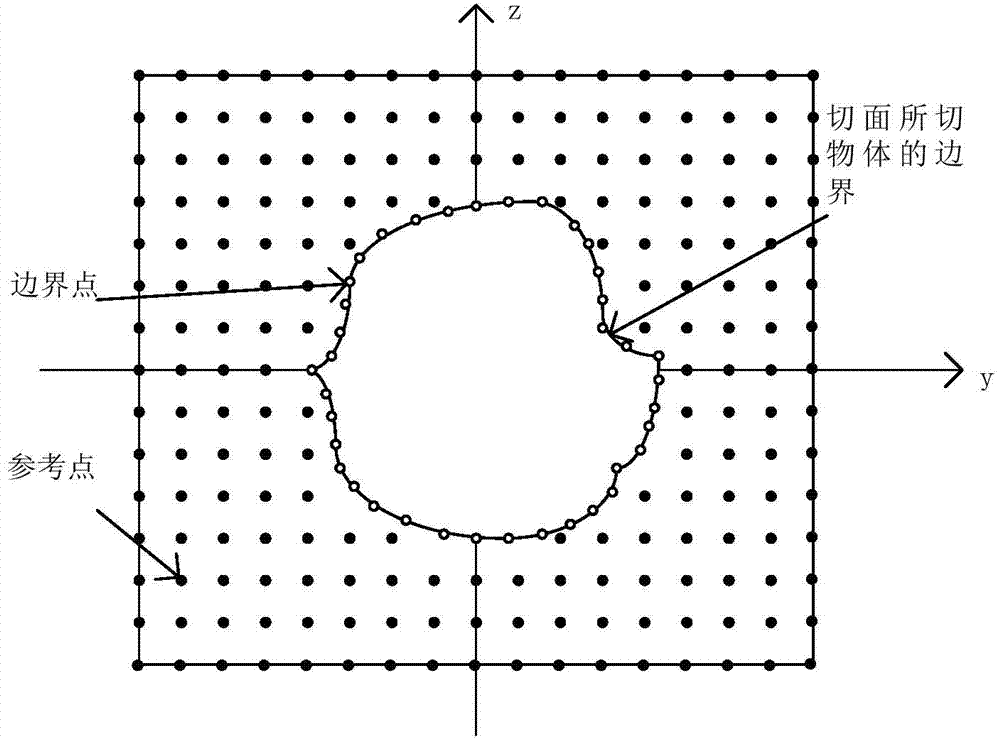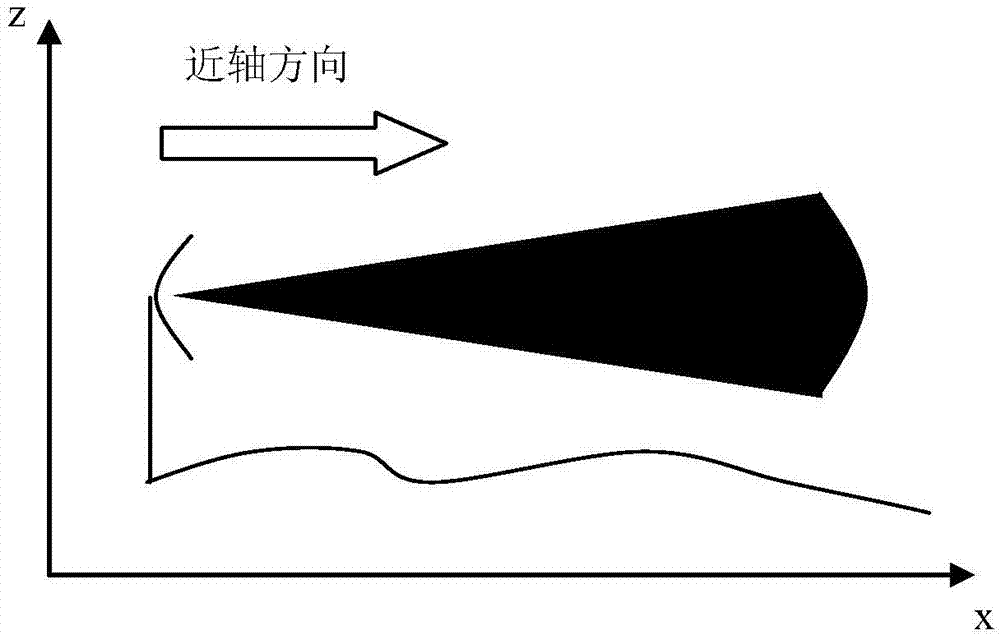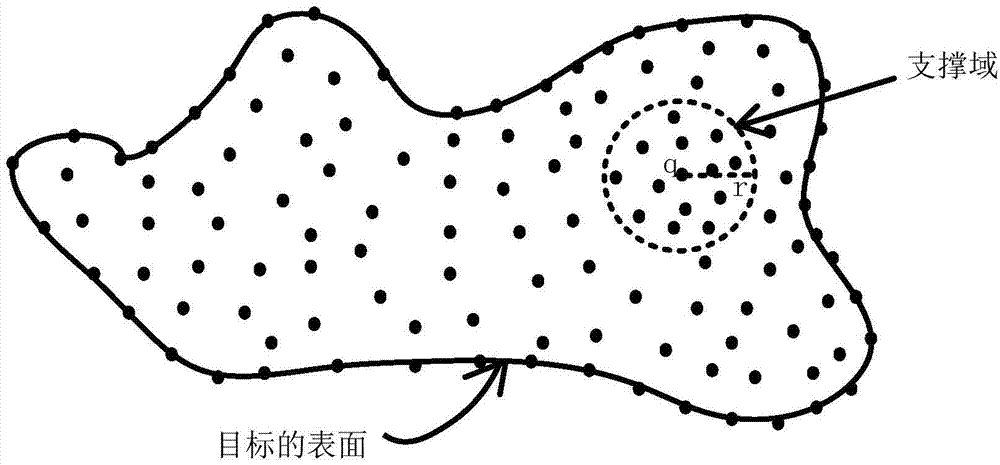Electromagnetic scattering analysis method of target with cavity on the basis of moment method and parabolic equation
A target electromagnetic scattering and analysis method technology, applied in the field of numerical calculation of target electromagnetic scattering characteristics, can solve problems such as large electrical size and electromagnetic characteristic analysis, and achieve the effects of simple equation formation, small memory consumption, and quick and easy matrix formation
- Summary
- Abstract
- Description
- Claims
- Application Information
AI Technical Summary
Problems solved by technology
Method used
Image
Examples
Embodiment 1
[0119] In this embodiment, a typical simulation of electromagnetic scattering from a metal-containing cavity target is performed. The simulation is implemented on a personal computer with a main frequency of 2.83GHz and a memory of 3.5GB. A metal cube with a side length of 6m and a cavity part with a side length of 4m is taken as an example. The plane wave is incident directly to the cavity opening. Observe the RCS at the center point of the cavity opening surface at different frequencies. The direction of the incident wave is θ=0°, The discrete interval in the x-axis direction is 0.1 wavelengths. In order to verify the correctness of the method of the present invention, the simulation result of the method of moments is used as a reference. Image 6 It is the comparison result of the RCS value at the backscattering point of the method of the present invention and the method of moments at each frequency, and the correctness of the method of this invention can be seen from the curv...
PUM
 Login to View More
Login to View More Abstract
Description
Claims
Application Information
 Login to View More
Login to View More - R&D
- Intellectual Property
- Life Sciences
- Materials
- Tech Scout
- Unparalleled Data Quality
- Higher Quality Content
- 60% Fewer Hallucinations
Browse by: Latest US Patents, China's latest patents, Technical Efficacy Thesaurus, Application Domain, Technology Topic, Popular Technical Reports.
© 2025 PatSnap. All rights reserved.Legal|Privacy policy|Modern Slavery Act Transparency Statement|Sitemap|About US| Contact US: help@patsnap.com



